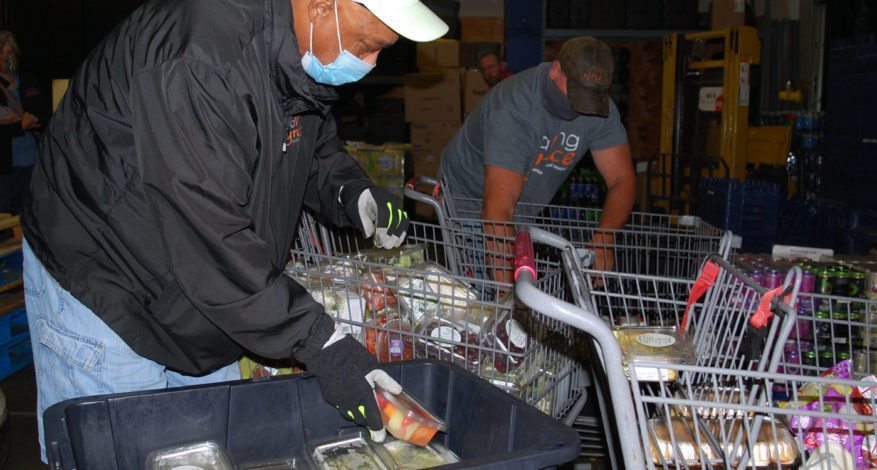Five Benefits of Being a Food Donor
Have you ever wondered where Saving Grace gets the food it rescues? It’s through partnerships with more than 50 food vendors that donate their surplus fruits and vegetables, dairy products, meats, prepared and packaged meals, grain products and more to feed the hungry.
Donors include grocery stores, wholesalers, restaurants, convenience stores, event centers, caterers, schools and other food vendors. Twenty of these businesses have donated surplus food to Saving Grace for five or more years.
Donating perishable food to feed the hungry is easy, and it makes good business sense:
- Businesses may receive a tax deduction for their donation.
- Dumpster fees are reduced, as there is less waste.
- Donating food rather than tossing it in the trash supports a business’ green initiative and/or sustainability plan.
- It’s great for engagement, as employees feel good about donating food to feed the hungry rather than throwing it away.
- The community benefits. Nonprofits receive the donated food, free of charge, and their clients have access to fresh, healthy foods. Less food in the landfills is good for the environment.
“In our industry, your heart breaks when you have to throw the food away, knowing there are people out there who really need it,” says Jennifer Snow, chef and co-owner of Catering Creations, a food donor since 2014. “Our partnership allows us to give back to our community and help families. It’s wonderful to be a part of something that makes such a huge impact.”
View our list of food vendors online. Then, support these businesses that donate food to Saving Grace. Find out what it takes to be a food donor.


